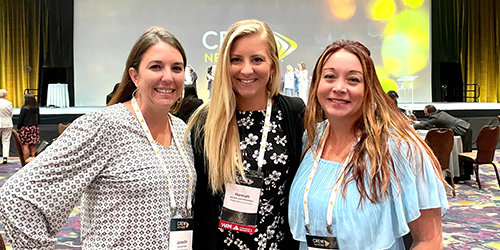Have you ever tried to get someone to do something they didn’t particularly want to do? Maybe you’re a manager and you asked one of your team members to do a tedious task. Or you asked a co-worker to help out with something really frustrating. Perhaps you’re a parent trying to get your children to do their homework. Or maybe you’re a customer, asking a sales rep to go the extra mile. Whatever the request, you probably met with resistance. It might not have gotten done at all, was completed but not quite the way you wanted, or maybe it got done - but took forever.
How did you address it? Did you use the carrot or the stick? What if the right answer should have been “neither”?
My lesson in this began a few weeks ago. My son and I had been having struggles over homework and picking-up. I’d tried saying please, begging, nagging and even offering bribes. Nothing worked. As this wore on and my frustration increased, he began to get quite upset with the stern tone I’d taken to using and told me that I should be nicer. He felt I wasn’t asking nicely, and it upset him. I was just tired of asking and beginning to think that I had failed to teach him about respecting his elders and authority.
After about two weeks of this back and forth, we had a conversation that had a significant impact on my approach. You see, each day we share our daily highs and lows. One night he mentioned that one of his lows was that the substitute teacher had been really rude. She said “shush” to a classmate and never said please or thank you. I groaned inwardly and automatically assumed this was an extension of our issues at home. “Typical only child,” I thought, “He expects adults to always treat him like an adult.”
But then my little man said something that, as he puts it, “flipped my script”.
He said, “Mom, the teacher doesn’t have to be like that. We’re people, too. Just little ones. We still have feelings.”
Wow. Those words shouldn’t have surprised me. But they did. And they made me think about how I’d been behaving during our nightly homework/clean-up melt-downs. So when my turn came to share my lows for the day, I decided to appeal to the little person with feelings. I shared that it made me sad to nag him. I explained the tasks I needed from him and why they were important to me. I shared how his behavior made me feel. And then I asked him if those expectations were unreasonable.
He looked at me for a moment and then, without a word, got up and set his alarm. When he sat back down he said, “I’m sorry mom. I’ll start in the morning.” I wasn’t sure whether to believe it or not. But, at 6am he was up writing thank you notes from Christmas and picking up Legos. His first question when I walked out of my room was, “Mom, look what I did. Am I helping?”
In that moment, it hit me. People aren’t going to cooperate because you ask and use the magic word, “please”. And they aren’t going to do it because you threaten to fire or ground them. They aren’t going to do something they don’t want to do without understanding why you’re asking.
Tell them why that crappy task or boring project is important. Tell them what it means to you, your company, your family – whatever. Explain what value they’re adding. Everyone needs to know what and how they are contributing. Connect those dots for them. Your team, your sales rep and your kids can’t read your mind and they don’t always see the same bigger picture you do.
Let’s face it – we’re all a lot more likely to do something we don’t want to do if we understand why it needs to be done and how it will affect the people around us. It’s even more poignant and effective if you can convey how it affect them. Tell your team how that report helps you, how it helps the team accomplish its goals and how much you appreciate it. Tell that customer service rep why your request is so important to you and how it will help not just you – but their company.
Give them a reason to do it. The magic word isn’t a good reason. And neither is the carrot or the stick.
After all, we’re all people – some of us just little ones.
Published On Feb 08, 2019
in Leadership & Development and PECO Culture





